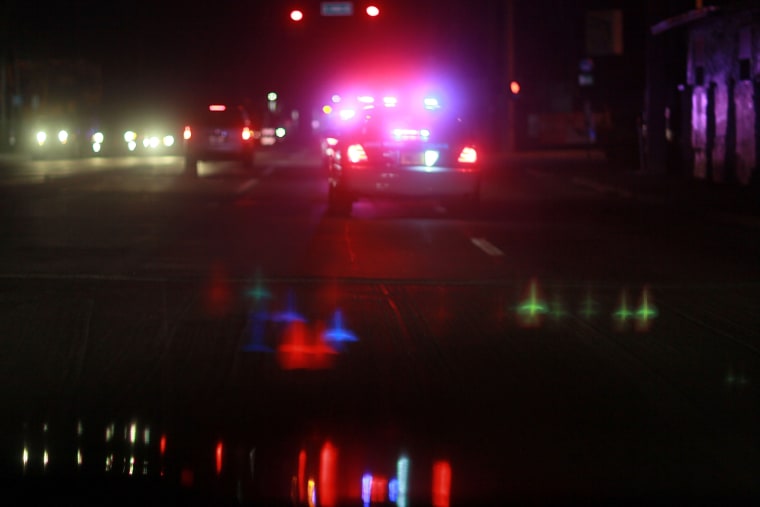The American Civil Liberties Union objected to this year's bill in a memo warning legislators that the measure would "unnecessarily carve out special programs for religious organizations and inextricably intertwine state authority and power with church operations."It also said the law would violate the First Amendment, which states that Congress cannot make any law "respecting an establishment of religion.""What this bill would do is to grant to a church -- a religious organization -- what is quintessentially governmental police power," Randall C. Marshall, legal director of the A.C.L.U. of Alabama, said in a phone interview. "It would include the power of arrest, the power to use varying levels of force, and the discretion to decide which laws to enforce -- or which laws not to enforce."
This Week in God, 4.15.17
Can a church former its own police force? In Alabama, legislation is advancing to allow one church to do exactly that.

First up from the God Machine this week is a report out of Alabama, where the state Senate voted 24 to 4 to allow a church "to form its own police force."Across the country, every house of worship is already entitled to the law-enforcement protections, but Alabama's Briarwood Presbyterian Church, with a congregation of more than 4,000 people, believes it's grown to such a size that it warrants special protection of its own. Under the legislation, the church would be empowered to "appoint and employ one or more persons to act as police officers to protect the safety and integrity of the church and its ministries."There doesn't appear to be any precedent in the American tradition of a state empowering a church to appoint its own officers of the law, and as the New York Times noted this week, such an approach would raise profound legal questions in a country that's supposed to separate church and state.
The bill is scheduled to be considered in Alabama's state House as early as next week. If it passes, the measure would go to the state's new governor, Republican Kay Ivey, who was elevated to the post this week following Robert Bentley's decision to resign in disgrace in the wake of sex/corruption scandal.Also from the God Machine this week:* Donald Trump has apparently decided not to continue "the White House Easter Prayer Breakfast, a tradition that began in 2010 under President Barack Obama where he would invite Christian leaders from across the country to join him for a service in the East Room of the White House. It would include singing, a sermon and prayers, and the president would discuss the significance of Easter for him."* Religion's role in the French election: 'France's National Front presidential candidate, Marine Le Pen, slammed Pope Francis for welcoming migrants and attacked the Catholic Church for meddling in French politics. With just over a week to critical national elections, the far-right candidate said Friday she was 'extremely religious' but 'angry' with the church for getting involved in matters over which it had no concern."* Major pollsters usually say about 10% of Americans are atheists, but University of Kentucky psychologists Will Gervais and Maxine Najle believe that number is inaccurate: "The reason: Even in our increasingly secular society, there's still a lot of stigma around not believing in God. So when a stranger conducting a poll calls and asks the question, it may be uncomfortable for many to answer truthfully. Gervais and Najle recently conducted a new analysis on the prevalence of atheists in America. And they conclude the number of people who do not believe in God may be even double that counted by these polling firms."